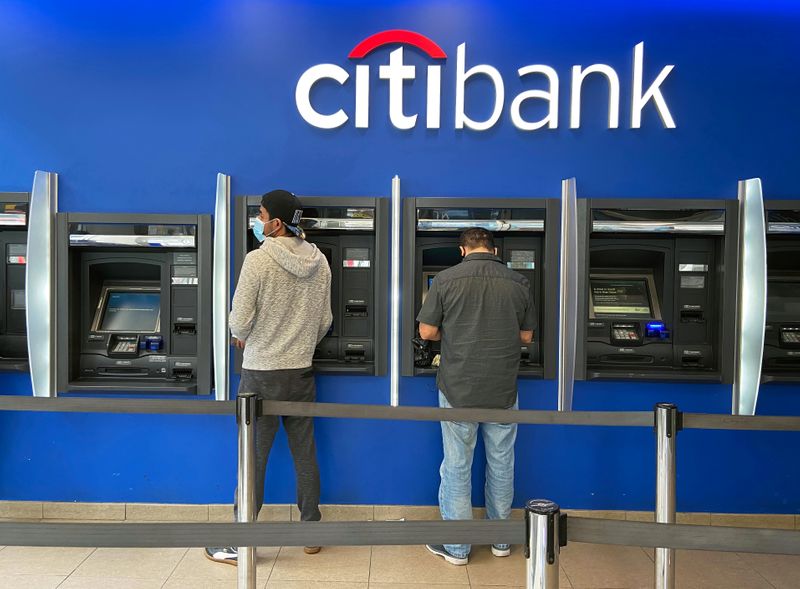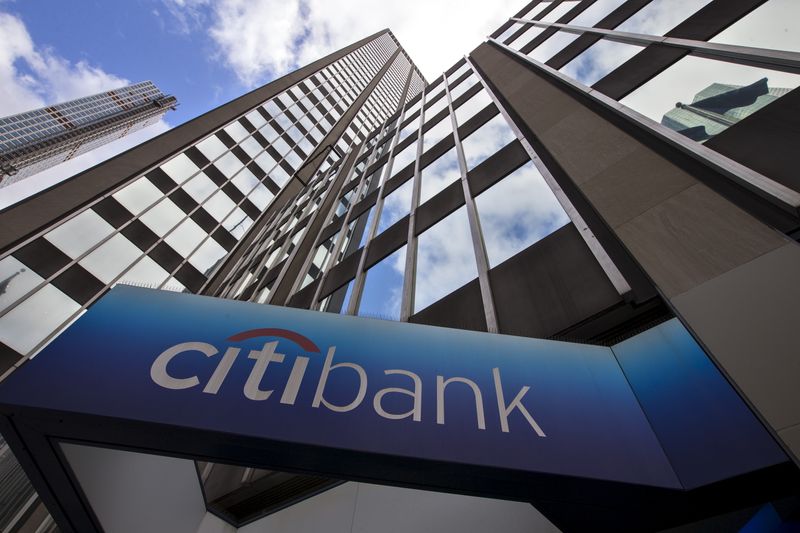By Imani Moise and Niket Nishant
(Reuters) - Citigroup Inc (NYSE:C) beat analysts' estimates for third-quarter profit on Tuesday, driven largely by a surge in trading, but its results underscored deeper troubles in its consumer bank that struggled with a decline in customers and spending.
The bank, which will have Wall Street's first woman CEO, Jane Fraser, at its helm early next year after long-time Chief Executive Michael Corbat retires, faces a series of challenges as a coronavirus-induced recession grips American households.
Citi's shares fell over 4% in early trade as management on a conference call indicated that the third-largest U.S. lender was bracing for prolonged pain, a view that contrasted with JPMorgan Chase (NYSE:JPM) Inc's more upbeat views on loan losses.
"We are expecting a somewhat more muted and slower recovery in both unemployment and GDP through 2022," said Chief Financial Officer Mark Mason.
"In the crisis we are managing through, we're not seeing acquisitions or new account openings."
With the recession crushing consumer and business confidence, and with it demand for loans, Citi reported its first outright fall in revenue this year, down 7% to $17.3 billion in the third quarter.
Profit tumbled by more than a third as its credit card customers closed accounts and spent less.
Revenue in North American branded cards, the growth engine for Citi's consumer bank going into the year, fell 12%.
The bank, one of the largest credit card issuers globally, said end of period open accounts across its portfolio dropped by 4%, or more than 5 million, and purchase sales slid 10%.
BRIGHT SPOTS
There were, however, some bright spots.
Citi's trading business turned in another strong quarter, with revenue from bond and stock market trading jumping 18% and 15%, respectively.
Credit costs were helped in part by lower loan volumes, particularly in the consumer bank where customers have been paying down debt and account openings slowed.
The bank added about $314 million to credit loss reserves in the quarter, compared to the $15 billion it had set aside in the first half of the year.
Even allowing for the impact of a $400 million fine related to its mistaken transfer of $1 billion to lenders of Revlon Inc, Citi's total net income for common shareholders came in at $1.40 per share.
Without the penalty, core operating earnings per share would have been $1.55, which beat analysts' expectation of 93 cents.

